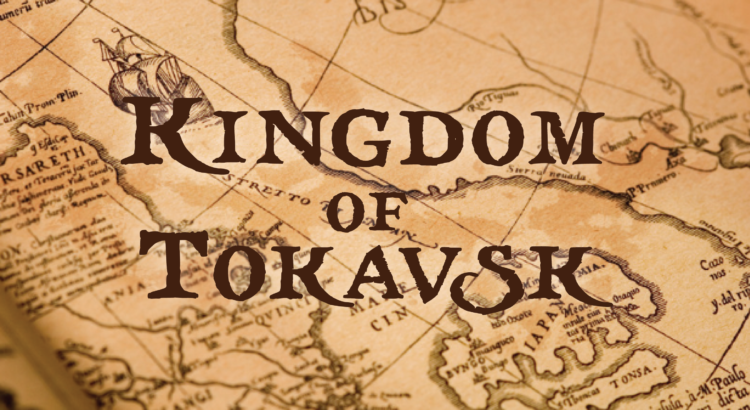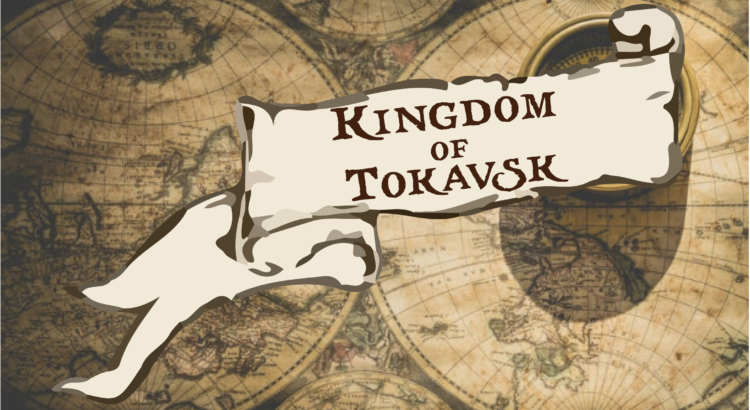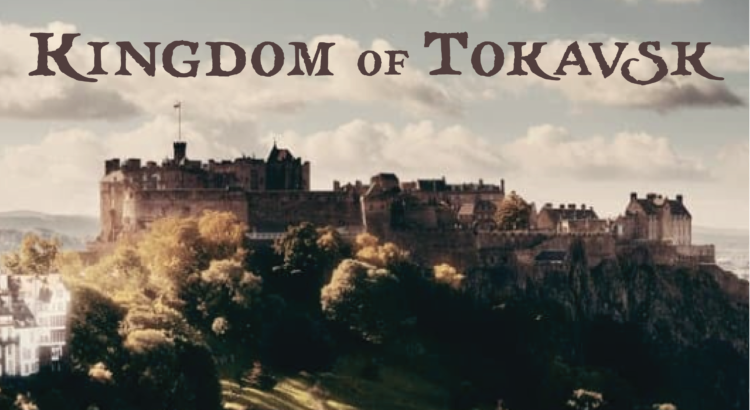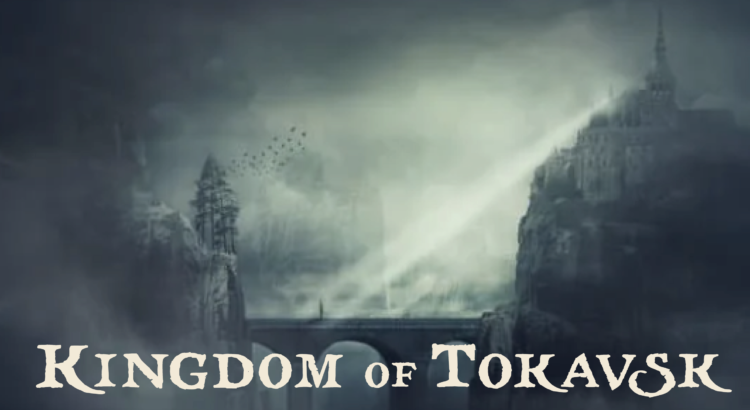The Ceremony of a Hundred Blades, the competition through which an heir is selected, is a ritual as old as Tokavsk itself. Tradition states that the Ceremony arose as a way to ensure that the future of the land was placed in the hands of the most capable ruler, as the Zheren believe being born of a great leader does not automatically make one a great leader themselves; rather, they must prove they are worthy to be the heir and guide Tokavsk toward her destiny.
An excerpt from the Decree of the Ceremony of a Hundred Blades reads as follows:
By the Decree of His Royal Highness Berin of House Saskat, the Selection of an Heir shall not be Based on one’s Father but by his Merit, Charm, Intellect, and Strength, by the Character of his Blood, and by his Ability to Retain his Innermost Self in the Face of the Impossible. He shall be the Utmost Leader, not conniving or weak but affirming and always planning for the Future. He shall be a Warrior in peace of violence, a Negotiator in periods of peace, but he shall not favor one extreme or the other lest the Balance of the Kingdom be upended. He shall be Stalwart in Times of Strife but honest and intentional, though he need not have all his intentions be known. He shall rely upon himself to make the best decisions, but he shall not be opposed to advice lest he become obstinate. He shall be mindful of the human propensity to err, able to make timely decisions yet not rush into decisions; deliberate but not such as to become absorbed within his own mind; insightful and introspective yet not overly withdrawn, though he knows when to speak up and when to be silent…. [The text goes into greater detail about the traits necessary for the King of Tokavsk, but for the purposes of this excerpt we are omitting the less important details.]
To determine the perfect Heir, all able Members of the Noble Houses ages 18 to 36 upon the Date Marked upon the Decree shall be Summoned to Wolf Court to Participate on the Ceremony of a Hundred Blades. Upon a Pilgrimage that is to begin as soon as the Candidates are able to set out, the Preparations are to begin…. [The description of the preparations for the Ceremony are vague and convoluted, and we feel that they are not relevant here. Furthermore, the mechanics of the Ceremony are not to be known beyond the Architects of the Ceremony and much of the directions are forbidden].
The First Test is the Test of Merit, in which the Moral Character of the Candidates is put to the Blade. This is to expose the irredeemably immoral; the would-be Tyrants; and the weak-willed, all of whom could lead to the end of Tokavsk. The Test shall present a moral quandary that can only be answered by the Pure of Heart; or rather, by those not so morally corrupt as to be lost. Those who fail to answer the riddle shall be Eliminated and shall not participate in the Evening Feast.
The Second Test is the Test of Charm, in which the Outward Persona of the Candidates is put to the Blade. Nervousness, fearfulness, weakness of character, and indecisiveness shall be exposed, and as such the Integrity of Tokavsk will be Preserved. The Test shall consist of Displays of Charm in a social situation that can only be passed by those with a Commanding Persona. Those who fail to assert themselves shall be Eliminated and shall not participate in the Evening Feast.
The Third Test is a Test of Intellect, in which the Problem-Solving Abilities of the Candidates are put to the Blade. The Literacy, Strategy, Wit, and Conviction of the Candidates will be Analyzed, and those who are Weak-Minded shall be exposed, preserving the Integrity of Tokavsk such that she cannot be taken advantage of. Those who fail the Exam shall be Eliminated and shall not participate in the Evening Feast.
The Fourth Test is a Test of Strength, in which the physical Integrity of the Candidates is put to the Blade. The Candidates of Poor Health, Slowness, and Weakness shall be exposed, preserving the Future of the Houses and of Tokavsk. It is from this Test that the Heir shall be Designated and the Future of Tokavsk secured. Those who fail the Exam shall be Eliminated and shall not participate in the Evening Feast.
This Decree was issued by His Royal Highness Berin Saskat on the 11th of April on the One Thousand Tenth Year in the Razan Age.
Scholars’ Note: It has long been suspected by those in the upper circles that the Fourth Test results in the deaths of some of its participants, but this has yet to be confirmed by official sources. Many claim that the Candidates who do not return are exiled or executed, while others say they have heard from their noble charges tales of Candidates starving or freezing to death if they were not slain. However, many of these claims are unverified or are written up as the ravings of exhausted nobles furious they failed the Ceremony.








